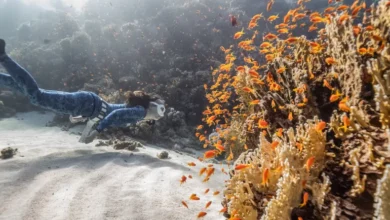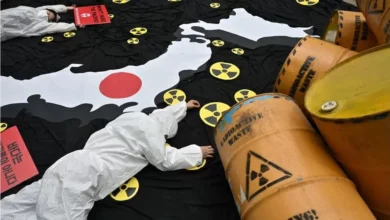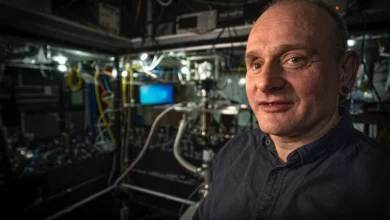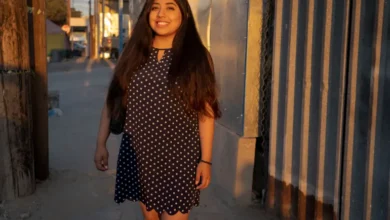Brutality of oppression: Ai Weiwei speaks on Gaza, China and New York City
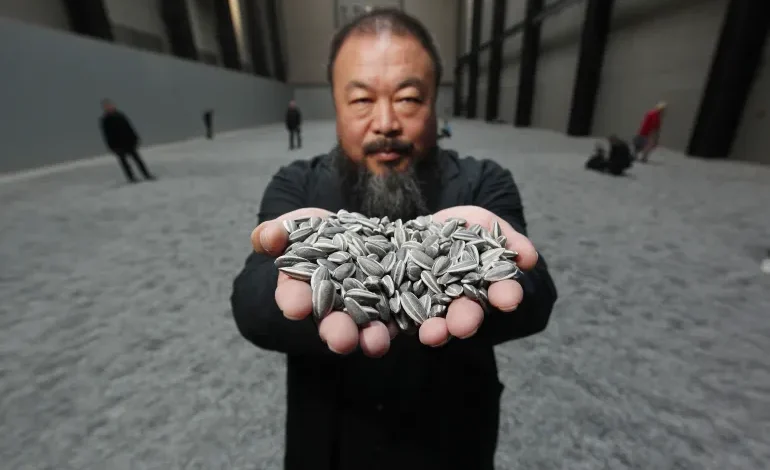
“Power is afraid of art and poets,” writes Ai Weiwei in Zodiac: A Graphic Memoir.
He would know. The renowned artist is a notorious rankler of the powers that be, particularly in his native China, where Communist Party leadership came to fear him to such a ferocious degree that he has endured prison, torture and now exile.
“Why does power fear the arts,” I ask him.
“Every form of power solidifies its foundation on absolute conditions, emphasising uniformity in thoughts, pathways, speech, and behavioural patterns,” he responds. “This uniformity serves as the fundamental prerequisite for the assertion of power.
“Contrarily, art and poetry inherently defy the pre-established restrictions of human existence, venturing into uncharted territories. They are, in essence, endeavours to construct a novel reality, constituting a potent and destructive challenge to authoritarianism.”
Zodiac is the latest of many such challenges posed by Ai over the decades. Rich with metaphor, philosophical musings, and rebellious wisdom, the book is “comic” in the classical sense – a work of komikos in which mirth and myth, commentary and critique are all combined, and tragedy is never too far off.
In it, Ai relates a lifetime of creative struggle against power and repression, from his childhood during the politically fraught period following China’s Cultural Revolution to his early forays abroad as a student in New York City during the 1980s, on through his illustrious artistic career and the violent reaction it inspired. Unwilling to cede to self-censorship, Ai has endured the destruction of his Beijing studios by Chinese authorities, imprisonment – and his eventual need to flee the country once and for all.
Now he is facing censorship once again, this time in the form of a London show cancelled last November after he tweeted criticism of United States-Israel relations in the early days of Israel’s war on Gaza.
Born into a ‘system of oppression’
Ai’s memoir opens with a scene from his childhood in China’s remote Xinjiang province, where his family was forced to live in an underground burrow due to the persecution and exile of his father – celebrated poet Ai Qing – in the wake of the country’s Great Leap Forward. Mao Zedong’s campaign intended to turbocharge the process of industrialisation in agrarian China, but its consequence was famine and a severe crackdown on intellectuals who were perceived as oppositional to Mao’s vision. In Zodiac, Ai describes how his family eked out their subterranean banishment as part of a “strange commune” where he took part in a competition to see who could catch the most mice. Ai won, accumulating a collection of their tails.
“The experience of growing up in an intensely politicised environment within the household of an intellectual subject to prolonged suppression and oppression was not different from the lives of others during that period in terms of material life,” he told me of this period. “During those times, everyone shared a common experience of living under the pervasive fear of politics.”
Sixty years later, Ai opens Zodiac with a scene between father and son in which the former warns the latter to avoid reading.
When I asked about it, he explained, “From my early years, I encountered discrimination and witnessed an unjust society, leading me to recognise that political oppression doesn’t emanate solely from those in power; rather, it permeates everyone’s ideology. In such oppressive circumstances, individuals willingly conform to the violence inherent in society, becoming conscious participants in the system of oppression. This type of society leaves victims with nowhere to hide, exposing them to harm on all fronts.”
After two decades of living in an Orwellian social structure, Ai decided enough was enough.
“Personally, the most discernible impact of the Cultural Revolution on me was the decision to leave China and move to the US. At that time, I perceived China as an abnormal and unsafe society,” he said. “In hindsight, at the post-Cultural Revolution time, China underwent changes, transitioning from an intensely politicised society under proletarian authoritarianism to a politically authoritarian yet simultaneously materialistic and capitalistic society in terms of lifestyle.”
What was it like, I ask, to leave such circumstances?
“The United States in the 1980s felt like an entirely different planet to me,” Ai responded. “Everything there, both in the realms of materiality and spirituality, severed any semblance of connection. Every new experience unfolded as an entirely novel world. While, to some extent, I attained the pinnacle of freedom, from an alternate viewpoint, I found myself subjected to the most stringent constraints.”
“The experience of growing up in an intensely politicised environment within the household of an intellectual subject to prolonged suppression and oppression was not different from the lives of others during that period in terms of material life,” he told me of this period. “During those times, everyone shared a common experience of living under the pervasive fear of politics.”
Sixty years later, Ai opens Zodiac with a scene between father and son in which the former warns the latter to avoid reading.
When I asked about it, he explained, “From my early years, I encountered discrimination and witnessed an unjust society, leading me to recognise that political oppression doesn’t emanate solely from those in power; rather, it permeates everyone’s ideology. In such oppressive circumstances, individuals willingly conform to the violence inherent in society, becoming conscious participants in the system of oppression. This type of society leaves victims with nowhere to hide, exposing them to harm on all fronts.”
After two decades of living in an Orwellian social structure, Ai decided enough was enough.
“Personally, the most discernible impact of the Cultural Revolution on me was the decision to leave China and move to the US. At that time, I perceived China as an abnormal and unsafe society,” he said. “In hindsight, at the post-Cultural Revolution time, China underwent changes, transitioning from an intensely politicised society under proletarian authoritarianism to a politically authoritarian yet simultaneously materialistic and capitalistic society in terms of lifestyle.”
What was it like, I ask, to leave such circumstances?
“The United States in the 1980s felt like an entirely different planet to me,” Ai responded. “Everything there, both in the realms of materiality and spirituality, severed any semblance of connection. Every new experience unfolded as an entirely novel world. While, to some extent, I attained the pinnacle of freedom, from an alternate viewpoint, I found myself subjected to the most stringent constraints.”
A young art student abroad
Ai spent more than a decade in the US, studying in Philadelphia and San Francisco before ending up in New York. There he struck up a friendship with poet Allen Ginsberg and discovered that the country he had come to was no stranger to brutality. When police were caught on film indiscriminately attacking protesters, community members and journalists while attempting to dismantle homeless encampments during the 1988 Tompkins Square Park incident, Ai happened to be there, taking photos, as he somewhat relentlessly photographed his time in the US.
Then, after 12 years, he decided to move on.
“It seemed to me that I had already obtained all things possible to me during my time there, and the prospect of discovering more unique experiences appeared elusive. Continuing my stay in the US would feel like a squandering of time. At that time, my father in China was ill, so it was a compelling motive to go back and stay by his side.”
Engagement with the human condition
Upon his return to China, Ai steadily gained recognition through his work, which challenged the social order at home as well as wide-ranging injustices abroad.
For his 1995 piece Han-Dynasty Urn with the Coca-Cola logo, for example, he stamped an ancient vase with the ubiquitous brand emblem, posing a question about consumerism’s growing effect on Chinese culture. His curation of the F*** Off exhibition in 2000 featured a slew of infamously provocative works – including one that may or may not have involved cannibalism. Then in 2007, Ai produced one of his most large-scale works yet – Fairytale – for which he brought 1,001 Chinese tourists from across the country to Kassel, Germany, to participate in the Documenta art festival.
The 2008 earthquake that devastated the Sichuan region prompted him to launch the Sichuan Names Project the following year, which drew the ire of the Chinese government by exposing its concealment of the staggering death toll and suggesting state policy was to blame for deadly infrastructure. In 2010, Ai contracted some 1,600 Chinese artisans to produce millions of handcrafted porcelain sunflower seeds in a meditation on individuality versus the collective.
With production so prodigious, I ask him whether he holds a fondness for any pieces in particular. Are there any that he regrets in retrospect?
“The so-called artworks of mine are all crafted from my thoughts and emotions,” Ai responded. “I do not regret having created them. They authentically reflect my true feelings and circumstances during those moments, intricately intertwined with the experiences of my upbringing. One doesn’t harbour regrets for their own growth; it is an inherent part of oneself, with no alternative possibility.”

